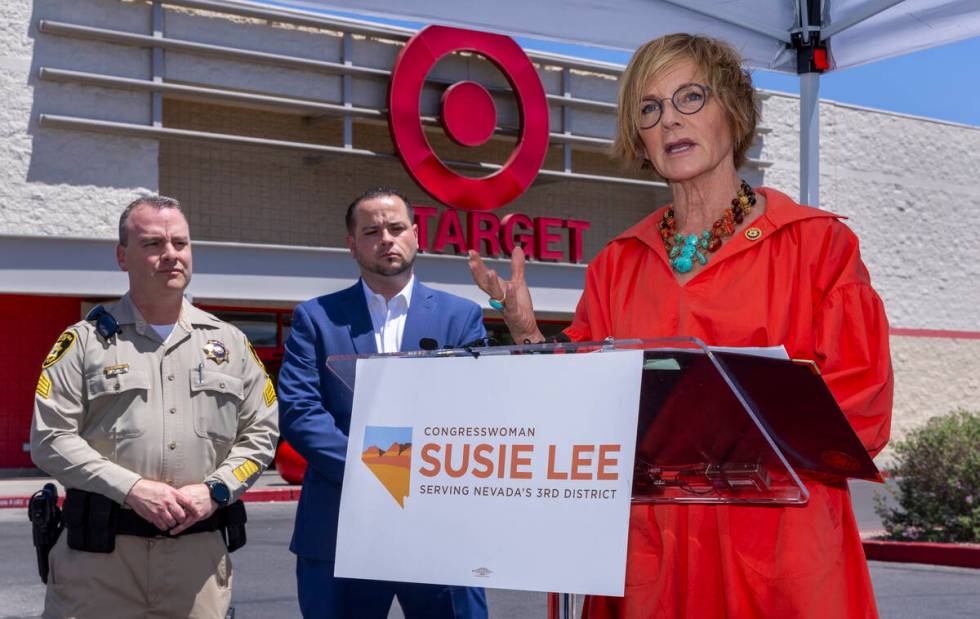‘Not your recreational shoplifting’: Feds putting more heat on organized retail theft

A bill co-sponsored by U.S. Rep. Susie Lee would put the weight of the federal government behind efforts to prosecute criminals taking part in organized retail theft, the Las Vegas congresswoman announced Friday.
Lee held a news conference Friday afternoon at the Rainbow Boulevard Target in Las Vegas alongside representatives of the Las Vegas Metropolitan Police Department and the National Retail Foundation of Nevada.
The proposed Bipartisan Combating Organized Retail Crime Act, targets individuals or groups involved in organized retail theft, with coordinated thefts of merchandise that can be resold at a lower price or returned to a store for refunds.
The U.S. Chamber of Commerce reported retailer losses of nearly $100 billion dollars in 2022, with organized retail crime contributing a significant amount, according to the trade group.
A survey by the National Retail Foundation said stores across the U.S. have reduced operating hours, changed the selection of in-store products, or closed locations of high-risk stores in response to retail crime.
“The truth is that organized retail crime hurts every Southern Nevadan, from small business owners, to consumers, to taxpayers,” Lee said. “Let’s face it: This is not your recreational shoplifting. This is organized crime, that is being run by sometimes, international criminal syndicates.”
Lee noted that the proceeds from organized retail theft fund their criminal enterprises like human trafficking and drug smuggling.
Bryan Wachter, senior vice president of Retail Association of Nevada, noted that this type of crime “doesn’t have a ZIP code” and represents a safety issues for retail employees.
“We have too many stories of retail employees being maimed, stabbed or hurt because of these criminal activities inside of our stores,” Wachter said. He noted that the perpetrators of these crimes are novices sent in by organizers who never directly participate in the thefts.
One challenge in addressing organized retail crime is determining its scope. In a Brennan Center for Justice article, Ames Grawert and Ram Subramanian write that data on the prevalence of organized retail theft is often unreliable due to how its legal definition varies across municipalities.
Sometimes, the researchers wrote, organized retail theft is categorized alongside crimes like employee theft, and sometimes municipalities put it in their own category.
Nevada has passed its own law on organized retail theft and Lee hopes to pass the Bipartisan Combating Organized Retail Crime Act before the general election in November.
Contact Annie Vong at avong@reviewjournal.com.